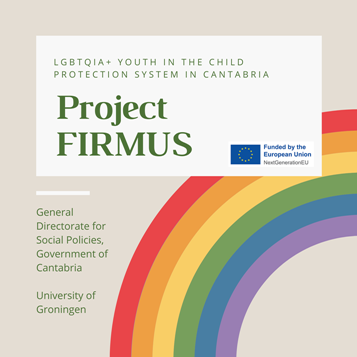Firmus

View this page in: Español
Importance of the project
LGBTQIA+ youth (Lesbian, Gay, bisexual, Transgender, Queer, Intersex, Asexual/Aromantic/Agender and other sexualities and genders) are recognized as a marginalized group by the child protection system. On top of the adversities related to their family separation, LGBTQIA+ youth often confront specific challenges related to their Sexual Orientation and Gender Identity (SOGIE) such as lack of acceptance, discrimination, physical and verbal harassment, and physical and mental health problems resulting from these adversities.
Despite the several challenges that this group confront, very few child protection organizations around the world have policies, guides, or specific programs to assist care professionals in their work. Several international studies show that youth care professionals often lack competencies to support and affirm LGBTQIA+ youth.
In order to ensure a safe and affirmative residential care environment in which youth feel accepted and able to express their SOGIE is necessary to understand how this group experiences protection services, how they perceive the attitudes of their carers, and how these attitudes influence their day-to-day life. It is equally important to know how sensitive youth families are towards their SOGIE, and to comprehend the factors that could foster the family acceptance and support.
The design of this research project includes the perspective of LGBTQIA+ youth, their professional carers, and their families, and consist of three studies:
- Study 1. Narrative interviews with LGBTQIA+ youth in residential care.
- Study 2. Survey with care professionals about their knowledge and attitudes towards the LGBTQIA+ community, followed by interviews with those professionals who had worked with the LGBTQIA+ youth in residential care.
- Study 3. Interviews with families of LGTBQIA+ youth in care.


